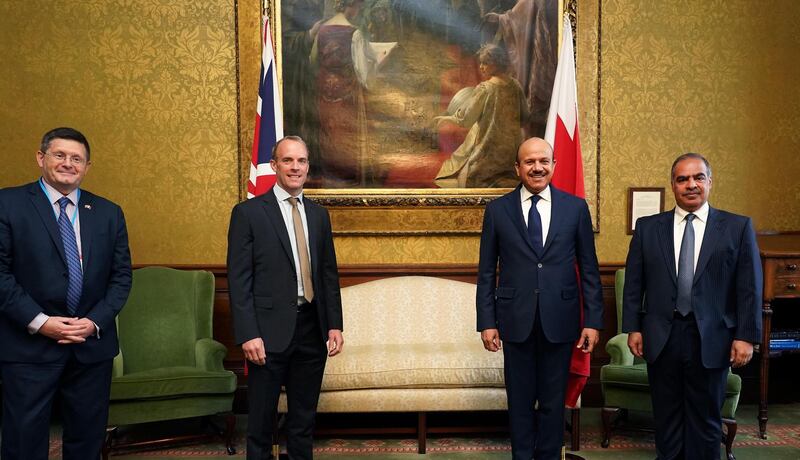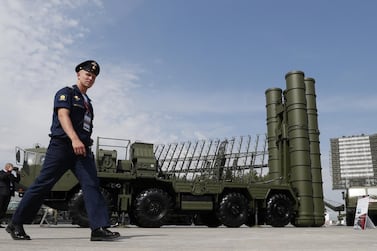Bahrain’s new foreign minister said he will be pressing UN Security Council states to ensure the arms embargo on Iran does not lapse as soon as next month.
Abdullatif Al Zayani is on a three-country tour of Bahrain allies Egypt, Britain and France.
During his time in London, the former secretary general of the Gulf Co-operation Council said it was very important that countries understood what was at stake if the resolutions preventing the Iranian government from importing weapons were dropped.
“We have enough terrorists and we need to share with all the stakeholders what it means if this happens,” he said.
“Young people need hope and positive messages – not a rearming of Iran or making it easy for the militias to turn countries into war zones and to continue to see the flood of fighters across the region.”
Mr Al Zayani asked partners to realise the implications of lifting the arms embargo.
"We hope that governments will understand and appreciate we have a potential opportunity not to provide more arms for militias in the region," he told The National.
Washington has proposed the arms embargo expiry on October 18 be set aside and the moratorium “shall continue to apply until the Security Council decides otherwise”.
The US believes that full implementation of the arms embargo “is essential to the maintenance of international peace and security”.
After the defeat of a first resolution in mid-August, US officials said it could trigger a so-called snapback of all UN sanctions on Iran, including the arms embargo, using a process outlined in the 2015 deal that sought to stop Iran from developing nuclear weapons in exchange for sanctions relief.
Mr Al Zayani said the coronavirus pandemic had done nothing to mend the ills that plagued the region. Iran continued to interfere in his country’s affairs. There was interest from Tehran in Bahrain that changes over time but has never gone away, he said. The effects of conflict and armed factions were not diminished by health threats from the virus.
“Terrorists are still working on threats, countries are still interfering across borders despite all that has happened,” Mr Al Zayani said. “It should prove that all the world is a village and that we should be working towards peace and stability and to resolve conflicts.”
Bahrain was one of the first countries to take measures against the spread of infection and has used partial lockdowns and contract tracing apps to minimise the numbers of people who catch coronavirus.
Mr Al Zayani said he welcomed the decision of the three countries that came together in the Abraham Accord, the UAE, US and Israel, to provide a declaration that ceased the moves towards annexation of Palestinian territory. He emphasised the need for all sides to work together and have a peaceful future, side by side.
Aside from the most recent trip, Mr Al Zayani has managed one other foray since taking up his post in the first weeks of the year. That was to take a “good story to tell” to a meeting of the UN’s Human Rights Council in Geneva, Switzerland.







